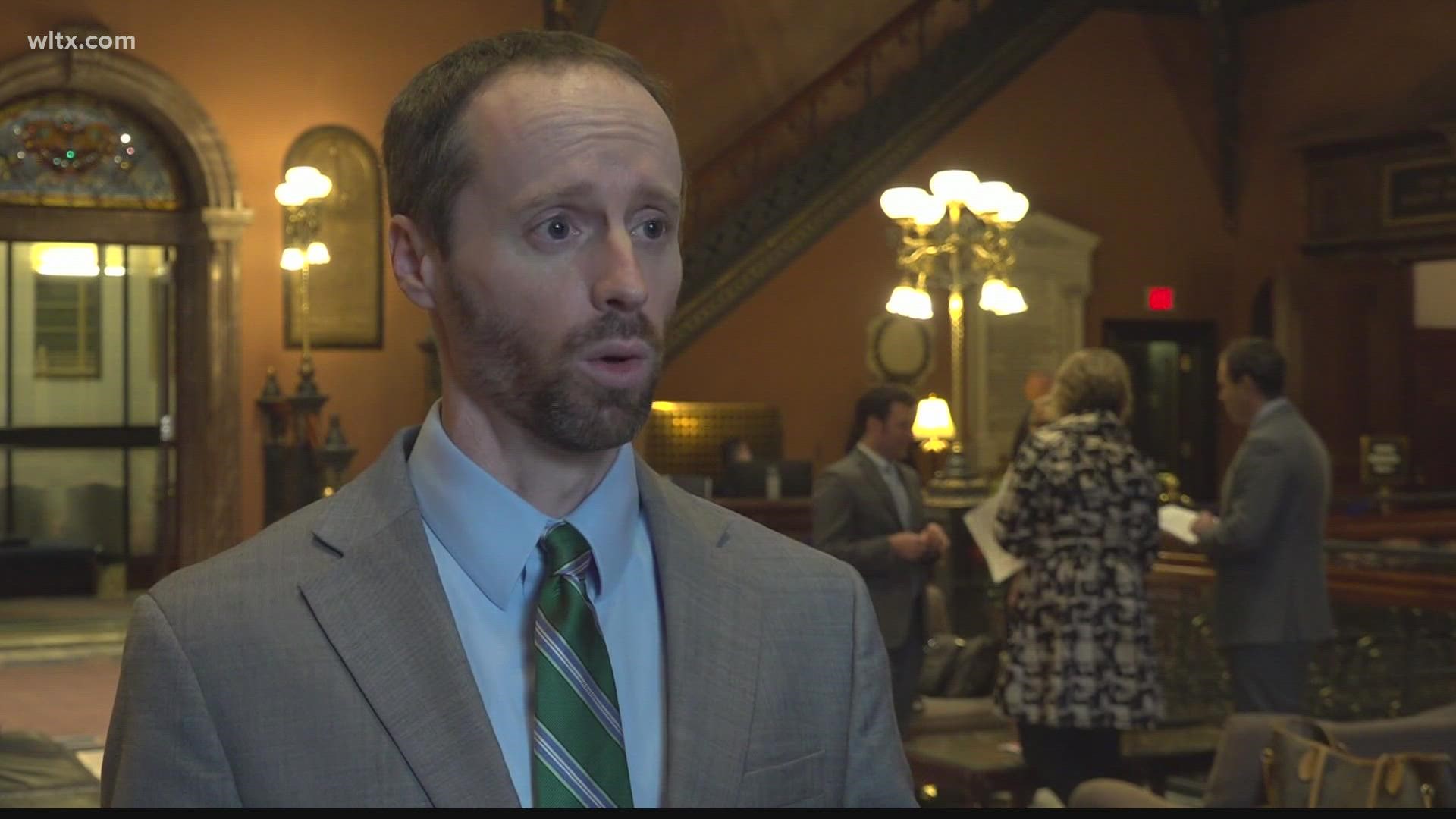COLUMBIA, S.C. — South Carolina senators are considering a bill that could help families pay for private school tuition. However, education advocates worry it will be at the expense of public schools.
"School choice" is a phrase often used by GOP lawmakers and the Governor when talking about access to private schools. Senate Bill 935 aims to give more families the choice of sending their children to private school if they're unhappy with their public school.
The proposed bill only applies to families that are at or below the 200% poverty level. For a family of four, that means making $53,000 a year, or less. If the family meets that criteria, they could apply for an education savings account (ESA). The account would give about $7,000 per child to go toward private school tuition.
“It puts parents in charge of their child’s education,” said the bill's sponsor, Senator Larry Grooms, (R) Berkeley.
However, Patrick Kelly, a teacher and director of governmental affairs for the Palmetto State Teachers Association, argued it only gives money to eligible children enrolling in private school and does nothing for kids staying in public school.
“This bill does not advance choice for South Carolina families. It advances it for a few, but for the overwhelming majority, they will have less choice with this bill because it will either withdraw funds from the local public school that they’ve chosen to send their child to or because to access the ESA, they’ll have to take their child out of public school,” said Kelly.
According to Kelly and other public education advocates, the bill will take money away from local school districts to fund ESAs if passed.
"For example, my children live in Richland Two," Kelly said. "If I apply for them to receive an ESA and I'm approved by the State Department of Administration, the state treasurer will pull back an estimated $7,000 from Richland Two.”
However, Grooms argued the opposite:
“It will not take a dime from any of the K-12 public schools in our state. Actually, K-12 public schools will see increases in education spending this year," Grooms said. "There will be more money for teachers, more money for schools in general – so we can do both.”
The bill has gotten backlash from public education advocates, but many GOP lawmakers and the governor have been pushing for education savings accounts and "school choice." The Governor specifically mentioned ESAs in his State of the State address Wednesday night:
"I am proposing $20 million be used to create education savings accounts which, by the way, have been available to parents in 'red' and 'blue' states for years," McMaster said. "Although some may say otherwise, we know that parents know what’s best for their children. They know the type of education environment and instruction that works best for their child’s unique needs."
Senators have heard feedback from the public on the bill. An education subcommittee will meet on Thursday, Jan. 27 to likely vote on it.
In a statement to News19, State Superintendent Molly Spearman said she supports families having a choice in what kind of school they send their children to. She added that “it is imperative that such policies and resources be administered by a body that has experience and knowledge in K-12 education, and that policymakers, taxpayers, and families have a means of measuring and comparing student academic achievement.”
Under the current bill, the state Department of Education is not involved in administering the ESAs.

